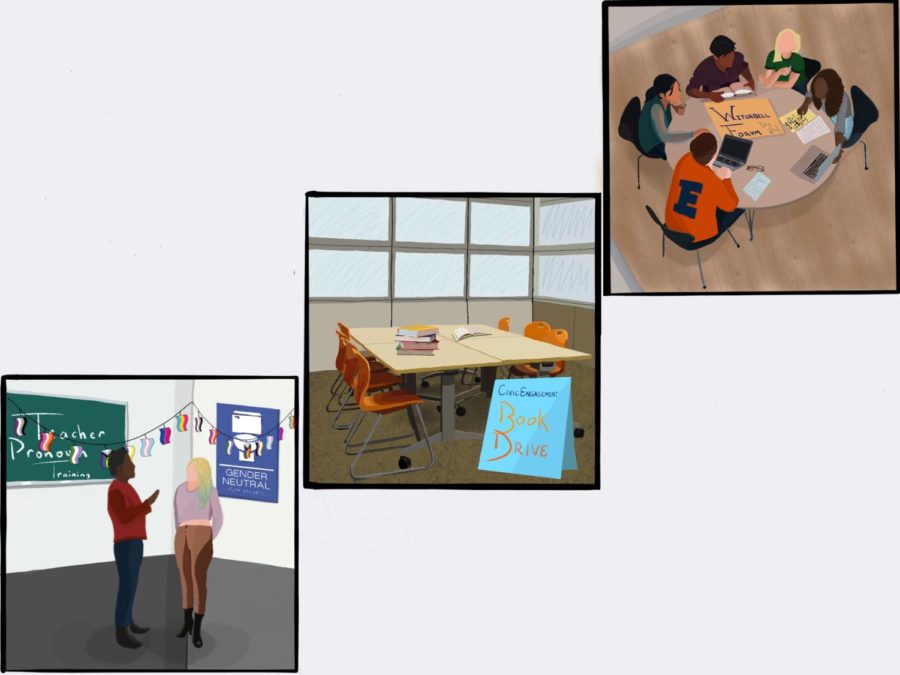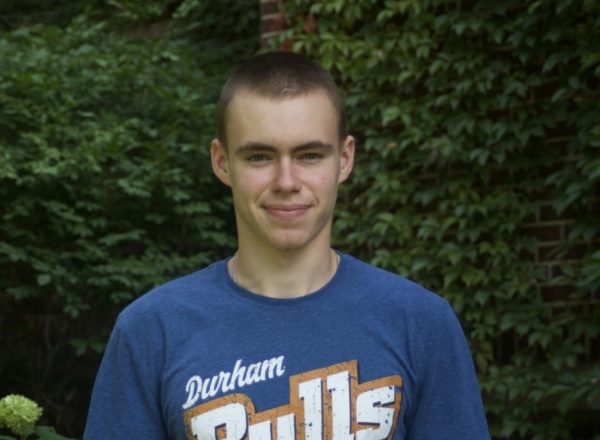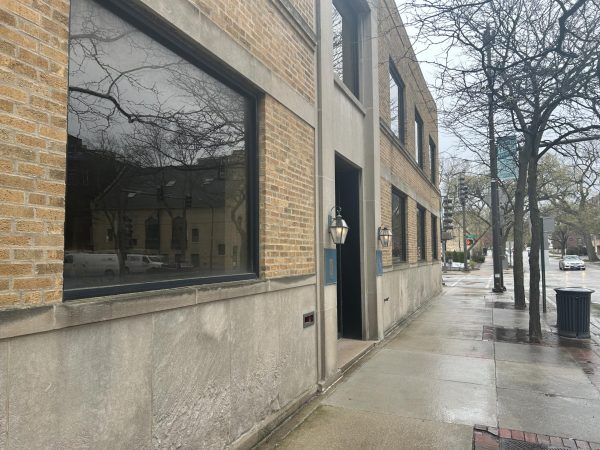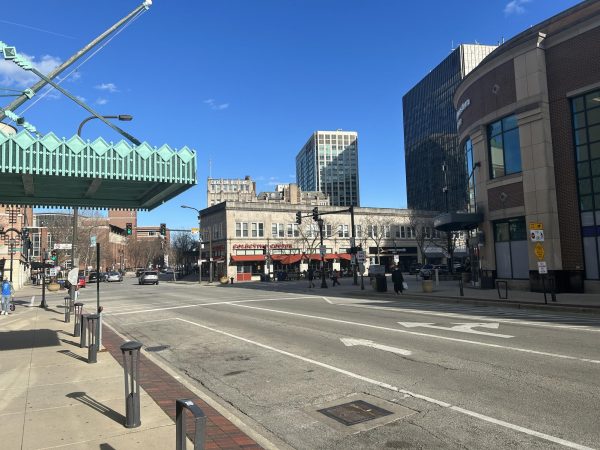Clubs offer students civic engagements opportunities
Civic engagement describes actions taken to help make a change in one’s community. It is based on participation in the community. Civic engagement is important for young people to learn about and participate in, because it helps them become informed about social justice issues and feel involved in making a difference while also educating them about responsibilities as citizens. While it may sometimes be hard for students to know how to stay civically engaged, there are many opportunities at ETHS for students to be active in their communities and help address social justice issues.
Civic Engagement Committee
The Civic Engagement Committee is part of the Community Service Club at ETHS, which focuses on civic engagement and actions taken to address issues of public concern.
Members on the board of the Civic Engagement Committee help to plan events, encourage people to join and advertise information about the events.
“The Civic Engagement Committee is a branch of the Community Service Club that’s focused on getting students civically involved and keeping students involved in their communities and just educating them on issues in the community and the changes that we can make,” senior and Civic Engagement Committee leader Serena Brown said.
Brown explained how the committee often works on community actions surrounding elections. “A big thing that we did was voter registration. It’s not an election year this year, but it’s usually some sort of election year—whether it’s local, state, presidential. We really just encourage voting and do everything we can to give people access to vote and to educate people on candidates,” Brown said.
The Civic Engagement Committee is currently organizing a book drive to collect books about different issues such as climate change, racial injustice and gender inequality. Brown hopes to get more people involved in the events planned by the Civic Engagement Committee so that they can educate more people on these topics. The committee is a part of the broader Community Service Club, so anyone can get involved in the events held.
It is often hard for students to find the resources they need to learn about social justice issues and to take part in making changes to help solve these issues and better their community. The Civic Engagement Committee is a big part of how ETHS students can help make a difference in their communities.
“We’re really focused on making ETHS a community that we feel more comfortable in,” Brown stated, “which I think transfers out into Evanston.”
Student Union
At the ETHS Student Union, students gather to discuss making changes around the ETHS community. Student Union is the place to go for kids who want to have a voice at ETHS. “The goal of Student Union is to connect the student body with the school administration,” junior and Student Union member Sophie Brown said.
To make these changes happen, the Student Representative to the School Board, Barbara Tomaradze, takes ideas from members of Student Union and alerts the school administration about what changes students would like to see made within the school. Tomaradze has weekly meetings with Assistant Superintendent and Principal Marcus Campbell to talk about these issues.
An important way that Student Union gets a gauge of the issues they should tackle is through the Witherbell Forum. This is a yearly event that gives students the opportunity to speak with administrators about school policies.
This year, it will take place on Dec. 6 in the Hub. Teachers can take their students there so that they can talk with each other about issues in the school and changes that they would like to see happen. “[The Witherbell Forum] will allow us to get a lot of different input from a very large sample size throughout the school. This will help us create more meaningful projects in Student Union,” Brown said.
The Student Union has made a large impact in the lives of students in the recent past.. In 2017, they played an essential role in changing the school dress code. Before these changes, students were not allowed to wear hats, hoodies, pajamas, yoga pants or spaghetti straps to school. But with a movement led by empowered members of Student Union, change happened.
Overall, there are many ways to be civically engaged, but Student Union offers students an opportunity to make changes directly impacting the ETHS community. It is a chance to have your voice heard.
While Student Union is a proactive, committed group of students, it has its challenges as well. One of these barriers is messaging. In order to do the best that it can for ETHS students, Student Union needs to effectively reach the whole school, which can prove challenging. Brown had several ideas about this issue.
“If it’s the issue of masking in school, do we create a little video saying, ‘Here’s why you wear your masks’ from a student’s perspective, rather than an administrative blank face? But then we’re also thinking, how can we utilize social media and Instagram or use posters,” Brown said.
It can be difficult for one group to find a voice in a massive place like ETHS, but Student Union is committed to making ETHS a better place for students. “At the end of the day, our message is that we are here to support the student body as a whole and to provide that representation to them,” Brown concluded.
Gender and Sexuality Alliance
The ETHS Gender and Sexuality Alliance (GSA) is an outlet for students to be themselves. It is a chance for kids to socialize with both new people and old friends. GSA leaders Helen Davis and Jasper Dabbs have embraced the GSA as a second family in their years at ETHS.
Davis described it as, “A social space where we are getting together, forming community and making friends.”
In addition to the social atmosphere, the GSA club is also working to make meaningful changes to the school to better address issues faced by LGBTQ+ students.
“The ETHS GSA has always been a social space, and we’d like to make it a little bit more of a space with a purpose,” Dabbs said.
For example, the GSA club is taking steps towards increasing accessibility to gender-neutral bathrooms. Dabbs stated, “Right now, there aren’t enough [gender neutral restrooms] and students are having to wait in line.” Dabbs and Davis feel like something can be done about that, leading GSA to push for change.
“We have gotten the ball slightly rolling with the ETHS administration on this,” Davis said.
This is all a part of the GSA’s ultimate goal to be a resource for the LGBTQ+ Community at ETHS. If someone has a concern relating to gender and sexuality within the school, the GSA wants to be there as an advocate and resource.
Additionally, the GSA wants teachers to be trained about how to address and use pronouns. “There hasn’t been any sort of teacher training on pronouns in three or four years,” Dabbs commented, reinforcing that making teachers comfortable with that topic would be beneficial for students.
In addition to the club’s advocacy work, their student outreach has grown exponentially over the years. Dabbs mentioned, “It’s pretty crazy, because 10 years ago, the GSA had a membership of something like 10 or 12.” Now, the group is hovering around 40 students.
The increase in the GSA club’s popularity is a result of the growing and evolving group of students who are a part of the LGBTQ+ community. The GSA helps students embrace their identity with a support system behind them. It is a weekly outlet for dozens of kids to feel welcomed and accepted.
Overall, the GSA is committed to improving the high school experience for all LGBTQ+ students at ETHS. The GSA will continue to serve as a social space, and they hope to make a lasting impact on generations of students to come.
Your donation will support the student journalists of the Evanstonian. We are planning a big trip to the Journalism Educators Association conference in Philadelphia in November 2023, and any support will go towards making that trip a reality. Contributions will appear as a charge from SNOSite. Donations are NOT tax-deductible.







